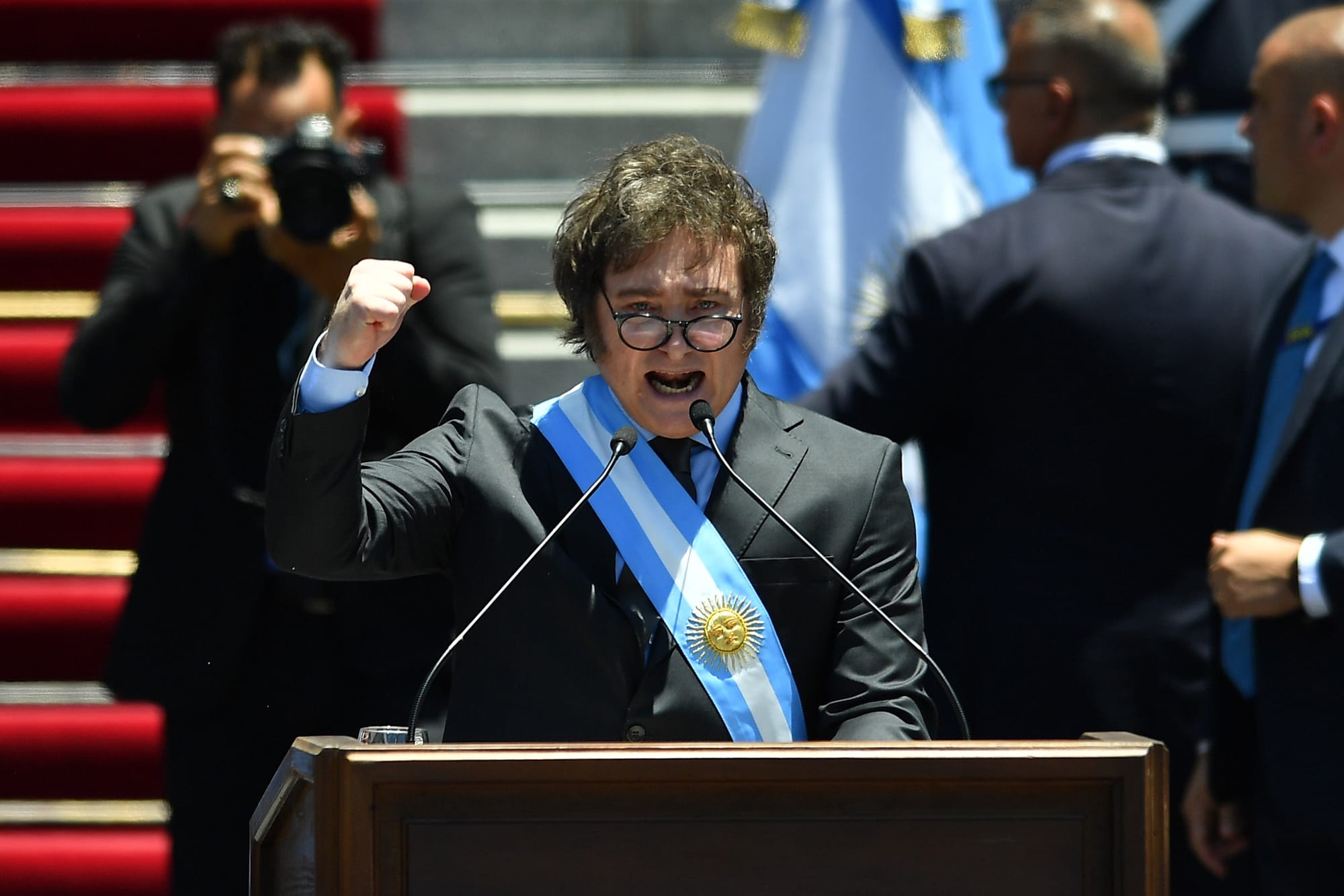Argentinian President Milei Advises on DOGE with Musk and Ramaswamy

Argentinian President Javier Milei has recently shared his insights on the concept of government efficiency, offering advice that resonates with the newly formed Department Of Government Efficiency (DOGE) in the United States, spearheaded by Elon Musk and Vivek Ramaswamy under President Donald Trump. In a video clip of Milei talking on the Lex Fridman podcast, Milei suggested to Trump's team, "Cut to the chase," a piece of advice that could shape the strategic approach of DOGE.
Argentina President Javier Milei has some advice for Vivek and Elon in regards to DOGE: “Cut to the chase, go all the way, and don’t let your guard down.” pic.twitter.com/2CMPdbBDgr
— DΛVID (@DavidShares) November 21, 2024
DOGE's Mission and Challenges
The Department of Government Efficiency acronymized as DOGE, which is a play on the Dogecoin cryptocurrency because Musk is a huge fan, is not an official government department but rather an advisory body aimed at transforming federal operations. It was conceived to tackle what many see as the bloated and inefficient nature of government bureaucracy. Elon Musk, known for his entrepreneurial approach and significant influence in both technology and politics, alongside Vivek Ramaswamy, a former GOP presidential candidate with a business background, are leading this initiative to streamline government processes, cut wasteful spending, and introduce a more entrepreneurial model into government management.
Milei's advice to "cut to the chase" could be interpreted as an endorsement of a no-nonsense approach to government reform. This means identifying the most significant inefficiencies, reducing red tape, and focusing on actionable changes that yield quick, tangible results. For a figure like Musk, who has revolutionized industries with his direct and often disruptive strategies, this could translate into aggressive cost-cutting measures, restructuring of departments, and perhaps even the digital transformation of government services.
The involvement of Musk and Ramaswamy in DOGE highlights a unique blend of private sector innovation with public sector governance. Their goal is ambitious: to emulate what the Manhattan Project did for nuclear technology but for government efficiency. This comparison suggests a monumental overhaul, aiming not just at incremental improvements but at a complete rethinking of how government functions.
Critics, however, might argue that such a radical approach could overlook the complexities of government operations, where efficiency isn't just about speed or cost but also about ensuring equity, transparency, and effectiveness in service delivery. The challenge for DOGE will be to balance these aspects while pushing for reforms.
Milei's advice also implies a focus on results over rhetoric. In government, like in business, there's often a tendency to get lost in procedural debates or political maneuvering. Cutting to the chase would involve focusing on outcomes, perhaps through performance metrics, setting clear benchmarks for efficiency, and then rigorously implementing strategies to meet those targets.
Moreover, the interaction between Milei and Trump's administration through this advice underscores a global interest in reforming government structures. Argentina, under Milei, has been undergoing its own economic reforms, emphasizing deregulation and market freedom, which parallels the objectives of DOGE in the U.S.
The initiative faces significant hurdles, not least of which is the inherent resistance to change within large institutions. However, the backing of figures like Musk and Ramaswamy, who bring not just their expertise but also their networks and public influence, could provide the momentum needed for substantial transformation.
As DOGE moves forward, the world will watch closely. If successful, this project could serve as a model for government efficiency reforms globally, proving that even the most entrenched bureaucracies can adapt and evolve in the modern era. Milei's succinct advice, then, becomes a beacon for all involved, urging them to focus on what truly matters: efficiency, effectiveness, and the swift execution of reforms.

